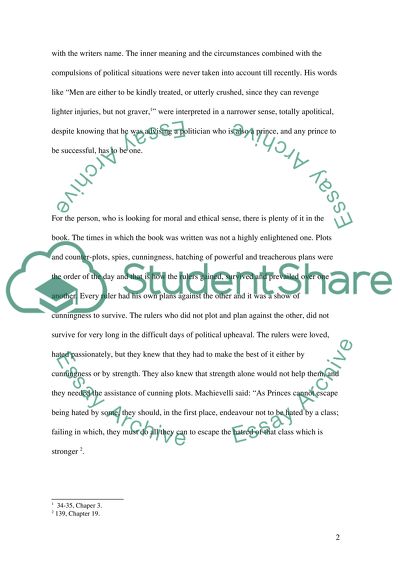Cite this document
(“Niccol Machiavelli's The Prince Book Report/Review”, n.d.)
Retrieved from https://studentshare.org/literature/1518808-niccol-machiavellis-the-prince
Retrieved from https://studentshare.org/literature/1518808-niccol-machiavellis-the-prince
(Niccol Machiavelli'S The Prince Book Report/Review)
https://studentshare.org/literature/1518808-niccol-machiavellis-the-prince.
https://studentshare.org/literature/1518808-niccol-machiavellis-the-prince.
“Niccol Machiavelli'S The Prince Book Report/Review”, n.d. https://studentshare.org/literature/1518808-niccol-machiavellis-the-prince.


